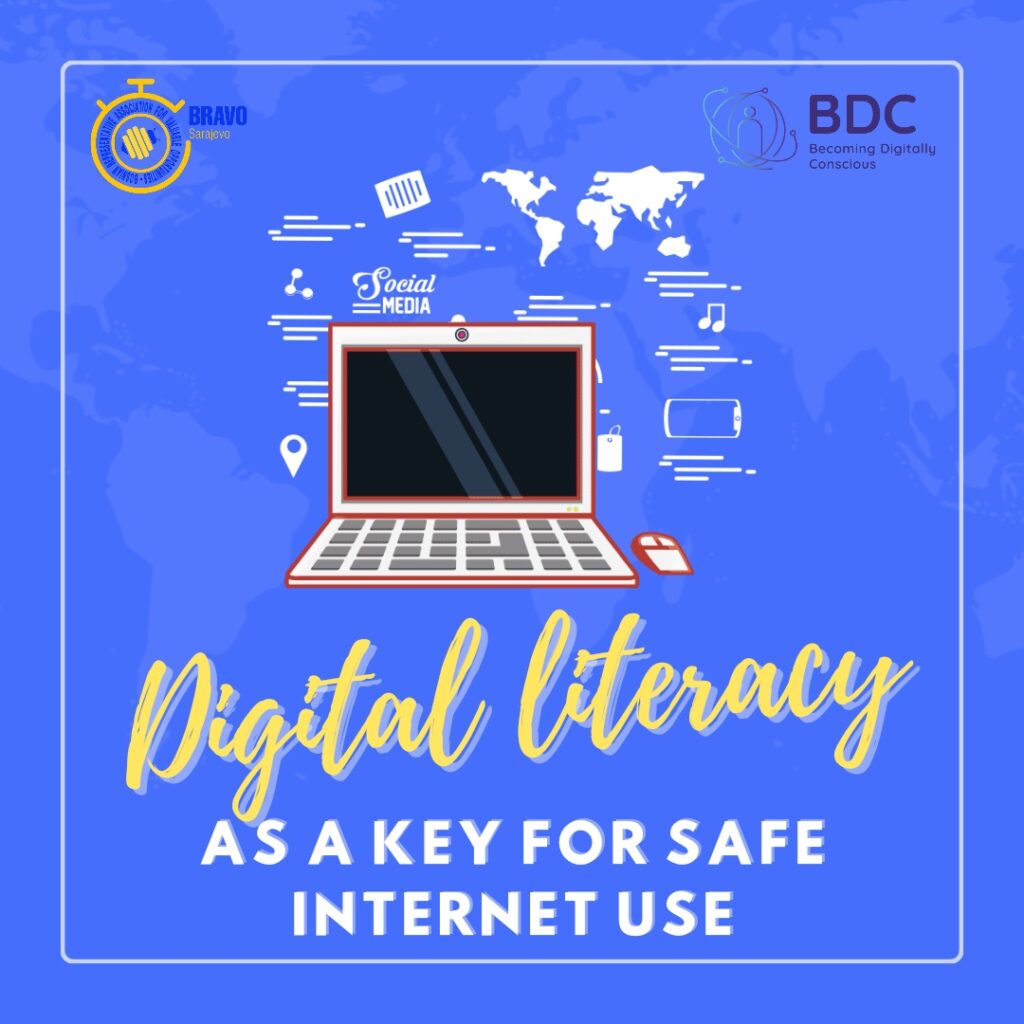
Digital literacy refers to the ability to find, evaluate, utilize, create and share information using digital technology and the internet. It involves understanding how to effectively navigate digital tools, critically assess online information for credibility, and responsibly use technology for communication, problem-solving, and productivity.
Introduction of the digital world has been changing our everyday life. Great changes are observed in various professions and it can be said that the traditional way of working in all professions has disappeared. Digitalization has transformed working in every career. Engineers have adapted using CAD software to design, while in medicine, advanced
technologies are applied for diagnosis and treatment. Treads are switching to online shops and marketing became a lot more accessible with the invention of social media, education got one absolutely new form and the number of benefits that is coming with the digital world is still rising.
Digital world made everyday life a lot faster and more productive. Now everything is just a click away from us. A lot of information, a lot of sources and a lot of people, we can access just by using the internet which makes the internet a great platform for learning, sharing knowledge and meeting new people from all around the world.
With all of the pros that internet has, like instant access to lots of information, various entertainment options and a way of making international connections and collaborations, we have to be aware that a big platform with a lot of people can bring some negative things, such as fishing scamming and bullying, if we do not use it properly and with good intentions. To be safe on the internet we have to work on ourselves and we need to expand our knowledge to keep up with the world. Digital literacy is crucial in today’s digital age to effectively function and thrive in various personal, academic and professional settings.
In Europe, according to data.europa.eu, currently more than 90% of jobs in Europe require basic digital knowledge alongside traditional skills like literacy and numeracy. However, approximately 32% of Europeans still lack basic digital skills and in Bosnia statistics are even worse. Great way to improve general knowledge of citizens in Bosnia and in Europe is education and motivation of adults and older people about modern technologies, workshops for students and parents, and promotion of informal education in this area. The lack of digital knowledge is mostly noticeable in smaller towns and rural areas which is also a reason why the development of those areas is smaller and slower but also that makes people from those areas easier victims of scamming or bullying on the internet.
As we already recognized the importance of digital literacy our goal should be to spread awareness and educate people who do not have a lot of experiences with the digital world, with the main goal to make the internet a safe space for most people.
MORE ABOUT "BDC PROJECT":
“Becoming Digitally Conscious” is a Capacity Building project targeted at the promotion of healthy digital habits among young people (between 18 and 25 years old) living in the European and Western Balkans area. The goal is to make this group aware of the potential dangers of making excessive use of digital devices, such as psychological disorders (e.g., eating disorders and depression). Considering that virtual reality has become an essential part of young people’s lives (especially during the covid-19 pandemic to study or socialize, which before they did mainly offline), we believe it is important to train them on how to integrate digital devices in a healthy and conscious way. Through the education of youth workers, the project will contribute to increasing the quality, innovation, and recognition of youth work, supporting the sharing of methods to address the opportunities and implications of digitalization. Of course, it is as well related to “Addressing digital transformation through the development of digital readiness, resilience and capacity” because all major social changes imply some areas of risk that need to be reflected upon to mitigate the issues created (in this case digital addiction).
More about BRAVO you can see on our video below:
